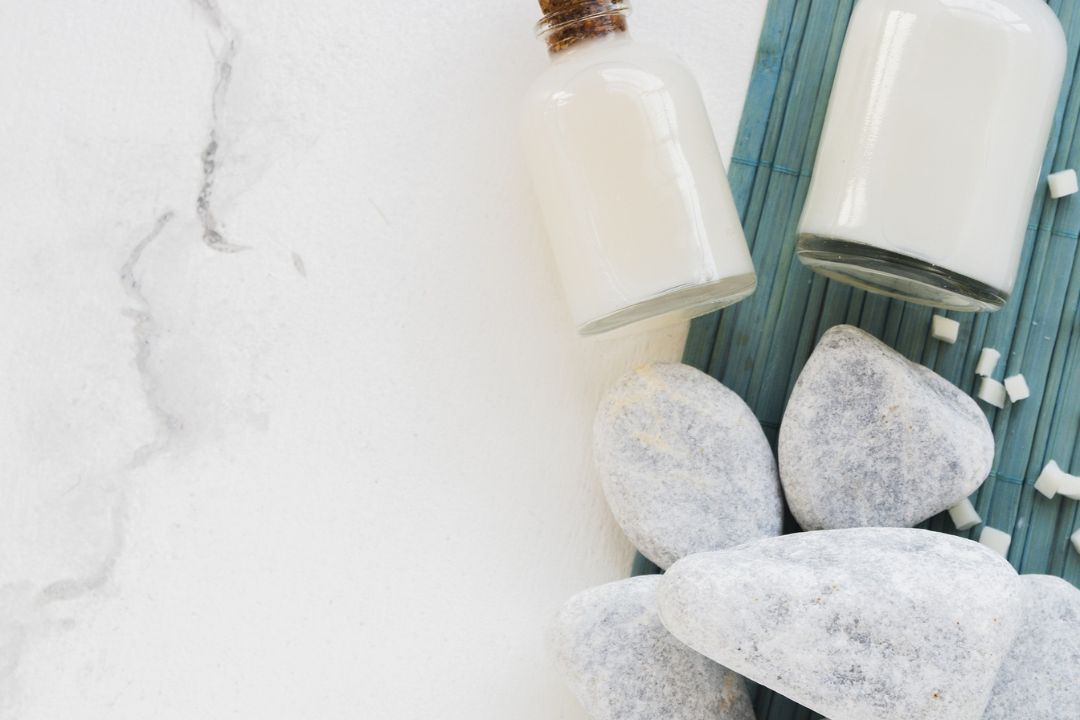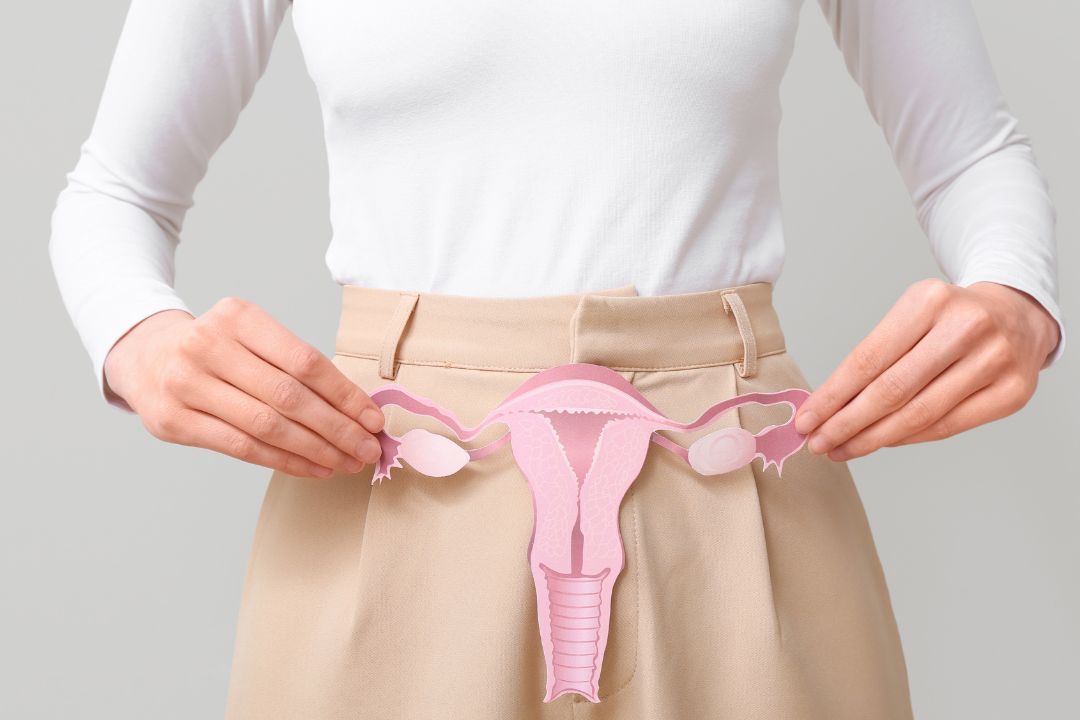Best Deodorant Tips for Menopause Night Sweats

If you’ve woken up in the middle of the night drenched in sweat, peeled off your sleepwear, and still noticed an unpleasant underarm smell by morning, you’re not imagining it and you’re not alone. Night sweats are one of the most disruptive symptoms of menopause.
They’re more than “just sweating.” Hormonal shifts during menopause change your body’s temperature regulation, but they also change your sweat chemistry. This can lead to odor that feels stronger, lasts longer, and sometimes even lingers after a shower.
The right bedtime routine, paired with a deodorant that actually works with your body, can make the difference between waking up feeling fresh or starting your day already uncomfortable.
Why Night Sweats Smell Different in Menopause
Here’s what’s going on behind the scenes:
-
Hormonal changes alter your sweat composition.
During menopause, fluctuating estrogen and progesterone levels affect your apocrine sweat glands. These glands produce sweat that’s richer in proteins and lipids — a perfect feast for odor-causing bacteria.
-
Your skin’s microbiome shifts.
Menopause often changes your skin’s pH and bacterial balance, sometimes increasing the growth of certain odor-producing bacteria like Corynebacterium.
-
Night sweats happen in a closed environment.
Underarm skin is warm, damp, and covered, which traps moisture and bacteria against the skin all night.
Understanding this helps us tackle the root cause of the odor, not just mask it.
If you want to learn more about why your usual deodorant might not be enough during menopause, check out our article on why deodorants often stop working during menopause
Why We Avoid Aluminum (and Why You Should Too)
Many antiperspirants, including “natural crystal” deodorants, contain aluminum salts or potassium alum. These work by physically blocking sweat glands. While that may sound appealing if you’re sweating at night, it’s not ideal. Sweat is your body’s natural cooling system and helps flush out waste products. Blocking it can lead to irritation, clogged pores, and even throw off the skin’s natural detox process. For menopausal skin — already more sensitive and prone to dryness — that’s not a trade-off worth making.
Instead of blocking sweat, we focus on neutralising odor and managing moisture naturally.
The Power of Natural Ingredients for Night Sweat Odor
-
Magnesium
Neutralises odor-causing acids without disturbing your skin’s microbiome. Unlike baking soda, magnesium is gentle on sensitive skin and won’t cause dryness or redness with nightly use.
-
Witch Hazel
Naturally astringent, it helps tighten pores slightly and manage moisture while calming any irritation. Perfect for skin that’s been through a hot flash.
-
Chamomile Extract
Anti-inflammatory and soothing, chamomile helps calm irritation and sensitivity that can come from frequent washing or sweat exposure.
-
Meadowsweet Extract
Rich in natural salicylates, it offers antibacterial properties to help keep odor-causing bacteria in check without harsh chemicals.
These ingredients work with your body’s processes, so you still sweat naturally but without the strong odor.
Thinking about switching to a natural deodorant but unsure if it’s right for you? We’ve answered the most common questions in our helpful guide Is Natural Deodorant Right for You?
A Night Sweat Deodorant Routine That Actually Works
Step 1: Rinse Strategically
Skip the long, hot shower at night — it can trigger more sweating. Instead, take a quick lukewarm rinse to remove sweat and bacteria. Focus on underarms, under the breasts, and skin folds where heat builds up.
Step 2: Exfoliate Gently
Once or twice a week, use a mild exfoliant (like a soft cloth or AHA toner) under your arms. This removes dead skin cells and reduces the buildup where odor-causing bacteria live.
Step 3: Dry Completely
Moisture dilutes deodorant. Pat underarms fully dry with a soft towel before applying.
Step 4: Apply a Natural Deodorant at Night
This is key. At night, sweat production is lower (even with hot flashes), so odor-neutralising ingredients can penetrate and start working before bacteria get active. With regular nightly use, magnesium and plant extracts can make your skin less hospitable to odor-causing bacteria over time.
Step 5: Choose Sleepwear and Bedding That Work For You
Breathable fabrics like bamboo or cotton wick away sweat, and moisture-wicking pillowcases can prevent dampness around your neck and chest.
Step 6: Keep the Room Cool
Lowering the temperature by just 2–3°C can reduce both the number and intensity of night sweats.
Morning Top-Up
If you sweat heavily at night, apply deodorant again in the morning after your shower. Think of the evening application as “laying the foundation” and the morning as “sealing the deal” for all-day freshness.
Lifestyle Tweaks That Make a Big Difference
-
Stay hydrated — dehydration can make sweat smell stronger.
-
Reduce caffeine, alcohol, and spicy foods in the evening.
-
Practice relaxation techniques before bed; stress can trigger night sweats.
Switching to natural deodorants is just one way to reduce toxins. Discover more simple steps in our guide on reducing everyday toxins.
The Takeaway
Night sweats in menopause are normal, but waking up with strong odor doesn’t have to be. By understanding the science behind the problem and choosing natural ingredients that work with your body, you can wake up feeling comfortable, confident, and fresh.
If you’re ready to take control of night sweat odor naturally, explore our range of gentle, effective deodorants formulated with magnesium. Designed for sensitive skin and humid climates, AporeNaturals deodorants help you wake up feeling fresh and confident, every single day.



